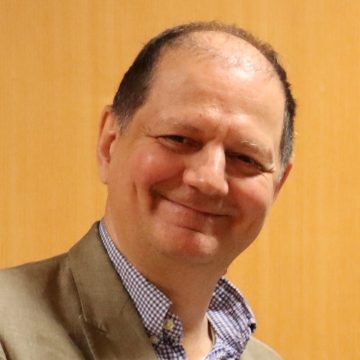
Information/AI
Nicolas Schweighofer
Specially Appointed Associate Professor
Computational Neuroscience
| 2019-present | Specially Appointed Associate Professor, Institute of Innovative Research, Tokyo Institute of Technology |
|---|---|
| 2011-Present | Associate Professor (with Tenure), Division of Biokinesiology & Physical Therapy, University of Southern California |
| 2011-Present | Joint Appointment (courtesy), Department of Biomedical Engineering, Viterbi School of Engineering, University of Southern California |
| 2004-Present | Joint Appointment (courtesy), Department of Computer Science, Viterbi School of Engineering, University of Southern California |
| 2004-Present | Joint Appointment (courtesy), Neuroscience Graduate Program, University of Southern California |
| 2004-2010 | Assistant Professor (Tenure track), Division of Biokinesiology & Physical Therapy, University of Southern California |
| 2002-2003 | Researcher, Computational Neuroscience Group, CREST, Kyoto, Japan |
| 2000-2001 | Director of R&D, Cerego Inc., Tokyo, Japan |
| 1997-1999 | Researcher, Exploratory Research Advanced Technology Organization, Kyoto, Japan |
| 2014-2016 | Awards to organize European Computational Motor Control Summer School from Labex NUMEV, Montpellier, France |
|---|---|
| 2004 | Best Paper Award, Japanese Neural Network Society |
| 2017 | Park H. and Schweighofer N. (2017) Nonlinear mixed-effects model reveals a distinction between learning and performance in intensive reach training post-stroke. Journal of NeuroEngineering and Rehabilitation 14 (1), 21 |
|---|---|
| 2017 | Bakhti, K. K. A., Mottet, D., Schweighofer, N., Froger, J., & Laffont, I. (2017). Proximal arm non-use when reaching after a stroke. Neuroscience Letters, 657, 91-96 |
| 2016 | Wang, C., Xiao Y, Burdet E., Gordon, J., and Schweighofer N. (2016). The duration of reaching movement is longer than predicted by minimum variance, Journal of Neurophysiology. 116 (5), 2342-2345 |
| 2016 | Reinkensmeyer D. J., Burdet E., Casadio M., Krakauer J.W., Kwakkel G., Lang C. E., Swinnen S., Ward N., and Schweighofer, N. (2016) Computational neurorehabilitation: Modeling plasticity and learning to predict recovery, Journal of Neuroengineering and Rehabilitation, 13, 1 |
| 2016 | Lee J-Y, Oh Y., Scheidt R., and Schweighofer N. (2016) Optimal Schedules in Multitask Motor Learning, Neural Computation, 28, 667–685 |
| 2016 | Park H. , Kim S. , Winstein C., Gordon J., and Schweighofer N. (2016) Short-Duration and Intensive Training Improves Long-Term Reaching Performance in Individuals with Chronic Stroke , Neural Rehabilitation and Repair, 30, 551-561 |
| 2015 | Kim, S.S., Ogawa K., Lv. J., Schweighofer N. and Imamizu H. (2015) Neural Substrates Related to Motor Memory with Multiple Timescales in Motor Adaptation PLoS Biology, 13(12): e1002312. doi:10.1371/journal.pbio.1002312. (NS: corresponding author) |
| 2015 | Kim S.S, Oh Y, Schweighofer N. (2015) Between-Trial Forgetting Due to Interference and Time in Motor Adaptation. PLoS ONE 10(11): e0142963. doi:10.1371/journal.pone.0142963 |
| 2015 | Gueugneau N., Schweighofer N., and Papaxanthis C., (2015) Daily update of motor predictions by physical activity. Scientific reports, 5, doi:10.1038/srep17933 |
| 2015 | Schweighofer N., Xiao Y., Gordon, J., and Osu R. (2015). Effort, Success, and Non-use Determine Arm Choice Journal of Neurophysiology, 2015 Jul;114(1):551-9. |
